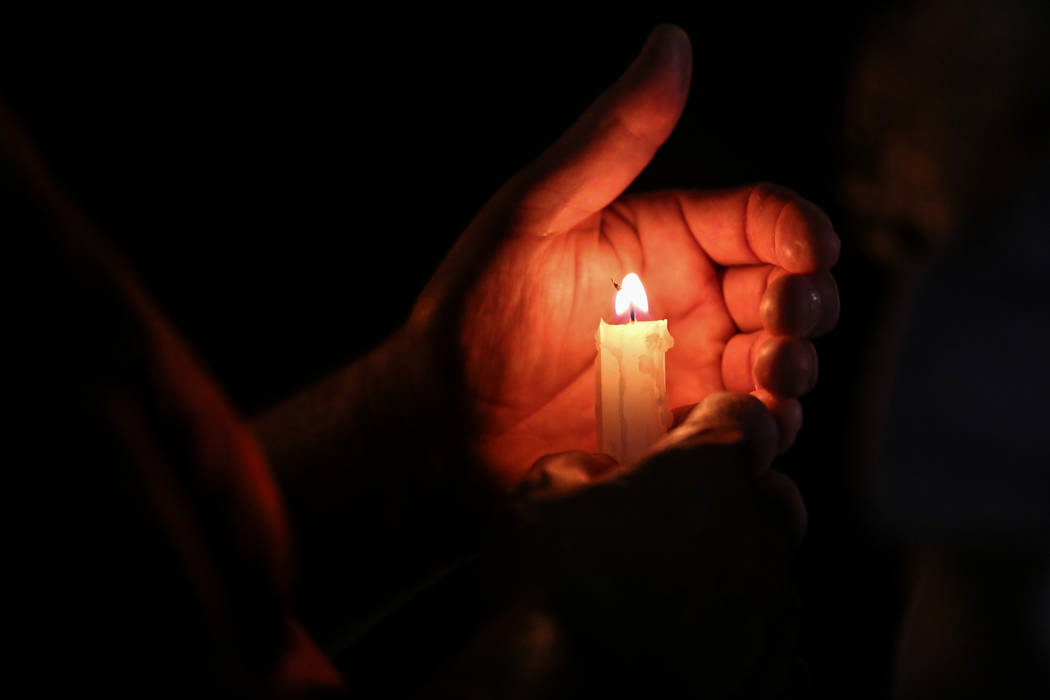Families of mass shooting victims offer solace to Las Vegas

They are coming from all over the country.
They are carrying a collective 18 years of trauma from losing loved ones in mass shootings.
And after Las Vegas experienced the worst mass shooting in modern American history on Sunday — breaking the record no community wants to break — they want to help.
“We are going to be available for victims and families, to answer questions that only we can answer,” Anita Busch, who lost her cousin in the 2012 Aurora, Colorado, movie theater shooting, told the Las Vegas Review-Journal by phone Wednesday afternoon while packing her bags for the drive to Las Vegas.
On their own dime, she and about five other surviving families spent the first few days of the week arranging their trips. They have no official name; they are not an official organization — they are people who have some semblance of what it’s like to feel the way more than 50 families in Las Vegas and beyond are now feeling, and they want to lend their ears.
“We’ve learned a lot through our horrible shared experiences,” Busch said.
On Thursday, the group will hold a 10 a.m. press conference in front of Las Vegas City Hall, offering advice to the community on how to deal with the coming days, after the national news media move on and the valley begins to fall back into old routines.
“The grief comes not in waves, but tsunamis,” Busch said. “We’re very sorry that you have joined our families, but we are here for you, no matter what.”
After the press conference, the group’s members will make themselves available to families still wearily waiting in hospitals for good news, along with those already planning funerals.
“Find each other. Hold onto each other. Get to know each other,” Busch said, addressing the survivors. “Because you will become support for each other. People will take turns being strong.”
Riding with Busch on her drive from California is Bob Weiss, who lost his 19-year-old daughter, Veronika Weiss, in the 2014 Isla Vista, California, killings.
“The best thing to say to someone is, ‘I’m sorry.’ And then shut up,” Weiss said. “Anything you say after that is bound to be misinterpreted.”
Contact Rachel Crosby at rcrosby@reviewjournal.com or 702-380-8135. Follow @rachelacrosby on Twitter.